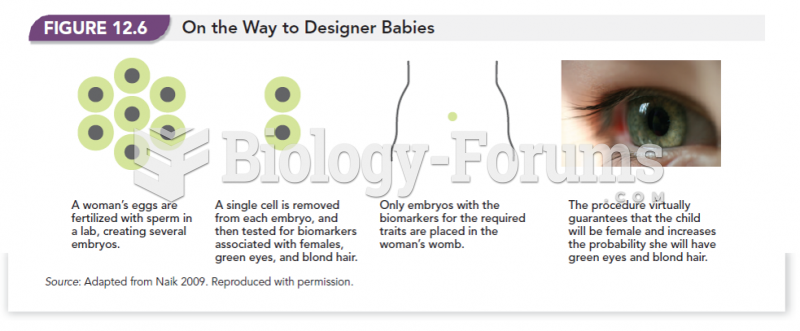|
|
|
About 600,000 particles of skin are shed every hour by each human. If you live to age 70 years, you have shed 105 pounds of dead skin.
Approximately 70% of expectant mothers report experiencing some symptoms of morning sickness during the first trimester of pregnancy.
Astigmatism is the most common vision problem. It may accompany nearsightedness or farsightedness. It is usually caused by an irregularly shaped cornea, but sometimes it is the result of an irregularly shaped lens. Either type can be corrected by eyeglasses, contact lenses, or refractive surgery.
Blood in the urine can be a sign of a kidney stone, glomerulonephritis, or other kidney problems.
Eating food that has been cooked with poppy seeds may cause you to fail a drug screening test, because the seeds contain enough opiate alkaloids to register as a positive.
 Empathy draws a more positive response from the patient because it is based on the willingness of th
Empathy draws a more positive response from the patient because it is based on the willingness of th
 Effective listening skills demonstrate empathy to the patient and break down barriers to communicati
Effective listening skills demonstrate empathy to the patient and break down barriers to communicati





